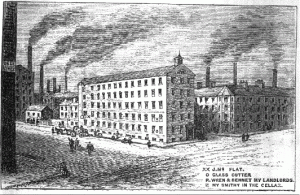In January 1957 six European countries convened and started negotiations toward a treaty for a common market among them. Those who convened to negotiate included France, Belgium, German Federal Republic, Italy, Luxembourg, and the Netherlands. The negotiations were meant to illicit talks that pertained to a common market. The treaty would eliminate most of the trade barriers that stand between these countries as well as establish a common tariff that would be enforced on the countries that were on the outside of this treaty.[1] When the news of the treaty made its way to the United States, the State Department released a statement to the press regarding the Treaty that was in support of this economic and political decision.
The United States State Department released a statement that was in full support of this decision made by the six countries. The U.S. viewed this as a positive step towards the cohesion of Western Europe, as they indicated as one of their two traditional policies of the U.S. Government.[2] Also, it was the hopes of the United States that this agreement would not only increase trade among the countries who are associated with the treaty but it can help foster more international trade. The more international trade occurs it helps boost the economies of those involved as well as promotes more countries to become involved in the practices of international trade. This treaty would help the European countries that participated in World War II help boost their economies and get back to being prosperous again. Trade also would be cheaper than before, due to tariffs being eliminated, which would help countries save money. This treaty could also help create more opportunities for those looking for work since there will be an increase in trade.
[1] Unites States State Department Press release on European Common Market January 15, 1957
[2] Unites States State Department Press release on European Common Market January 15, 1957

